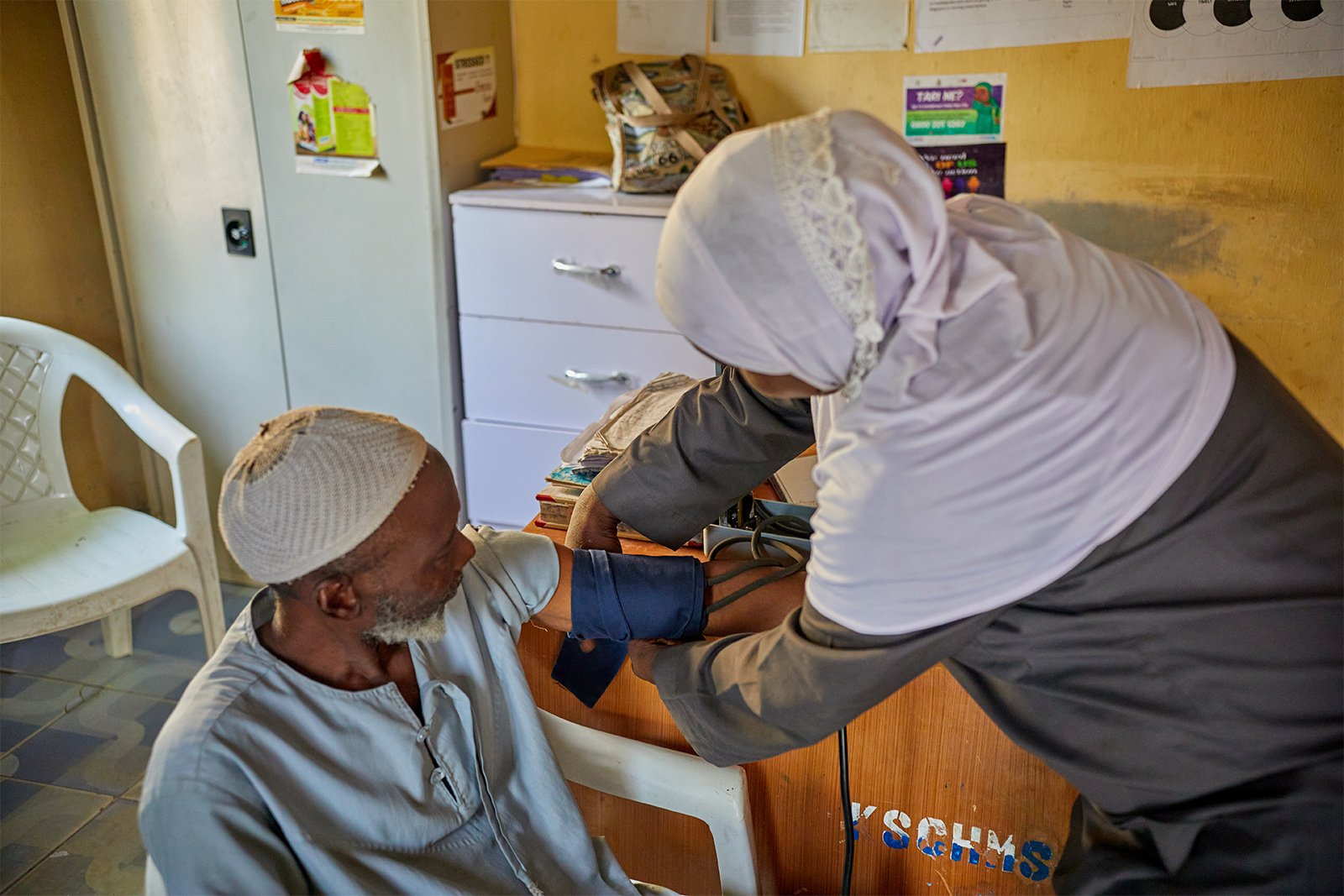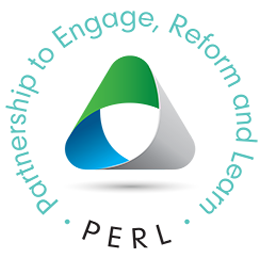




PERL works with its partners to identify critical blockages to the delivery of public services and develop practical ways to address them. Through these partnerships, the programme links government accountability mechanisms to systems and processes of public administration. Building on decades of governance reform in Nigeria, PERL adopts two complementary approaches to tackle governance gaps affecting service delivery.
PERL First Approach
Approach 1
Improving core governance processes by focusing on the application of PERL’s three pillars to general planning, budgeting, accounting, and audit processes.
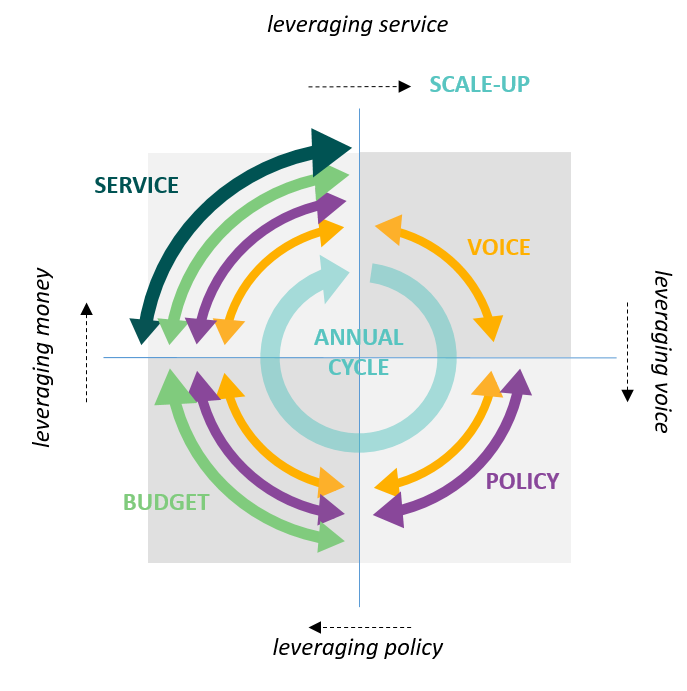
PERL Second Approach
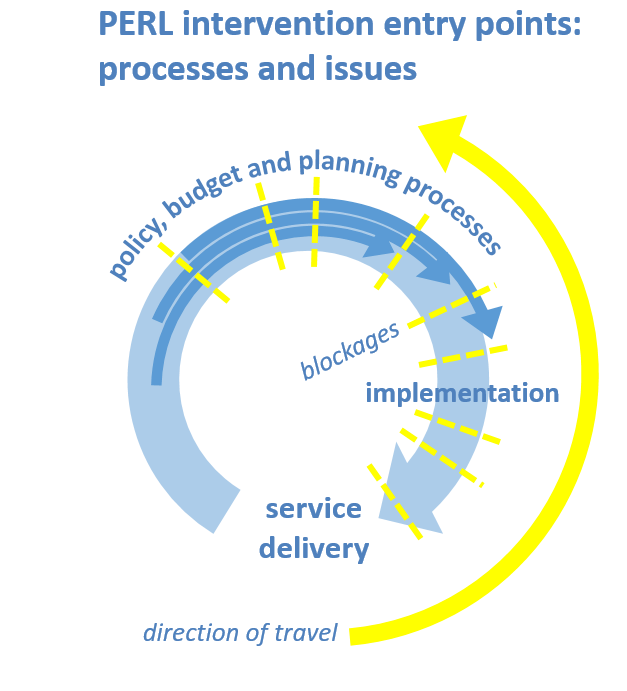
Approach 2
Addressing critical service delivery blockages in the implementation of government policies, budgets and plans, closer to the point of service.
Enabling core governance reforms
PERL provides technical support to partners who are improving accountability, transparency, and efficiency in the delivery of public services in Nigeria. The programme works to strengthen systems for making, implementing, tracking, and accounting for policies, plans and budgets. It also works closely with non-government actors to ensure that citizens are engaged in these processes. PERL prioritizes:
- Internal revenue – strengthening domestic revenue processes and accountability.
- Budget – improving the performance, transparency, and legal compliance of budgets, while increasing inclusion and accountability.
- Local governance – helping local governance systems to work better and forming partnerships between government and citizens for improved and sustainable service delivery.
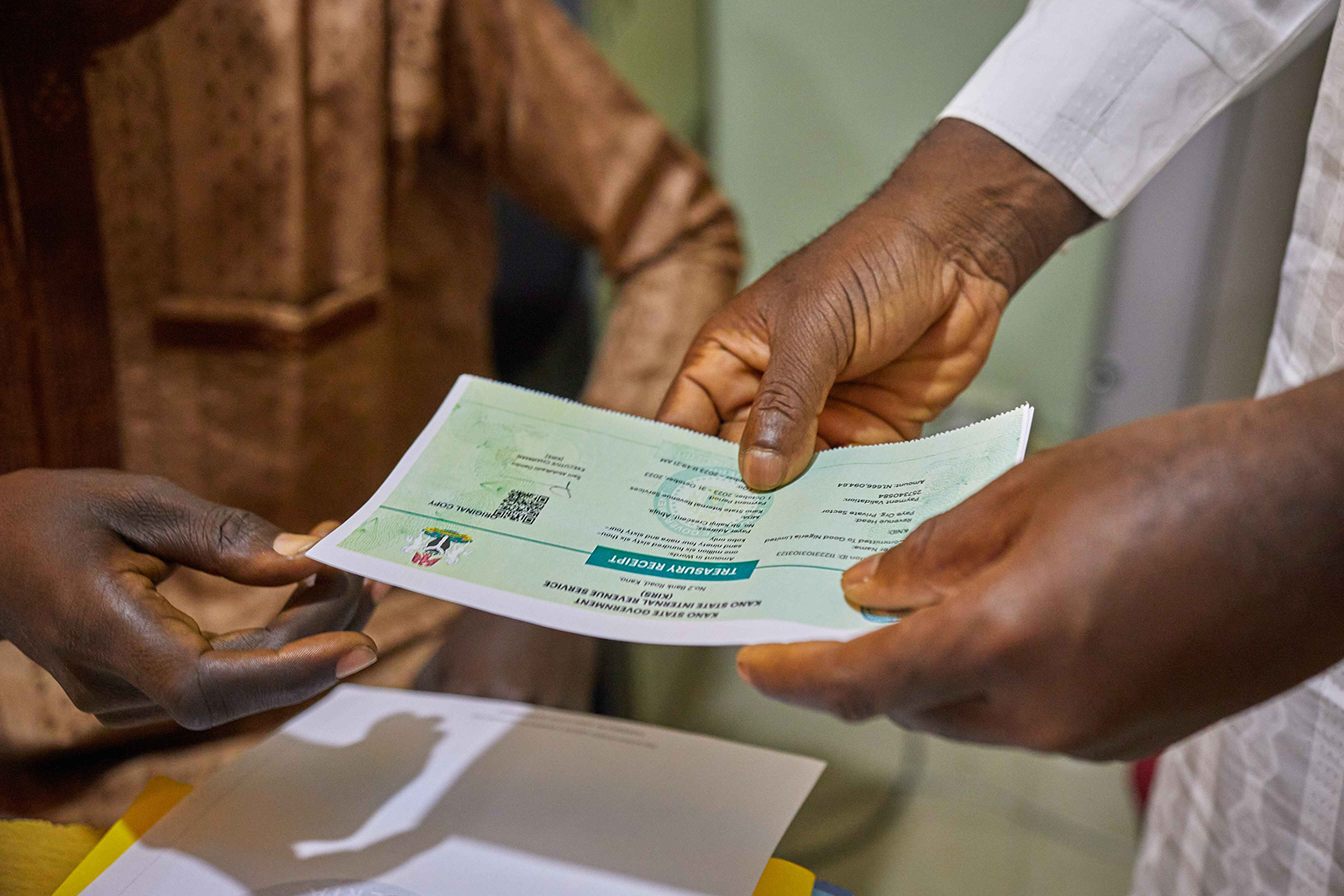
Addressing service delivery gaps
Based on a deep understanding of contextual realities, PERL supports scalable interventions to address service delivery gaps. The programme aims to ensure that governments are more responsive and accountable to the public and that government institutions involve citizens in decision-making processes more effectively. PERL recognizes that demonstrating the link between governance and improved service delivery is critical for transformational change. Currently, it prioritizes:
- Health – contributing to basic health service delivery in targeted states through better-managed systems, with a focus on the effective use of resources and addressing budget performance and accountability.
- Education – addressing blockages in the delivery of education services through systems strengthening, more effective use of resources, improved accountability, and partnerships.
In the Regional Hubs, PERL supports regional platforms to facilitate learning, improve platforms’ and partners’ capacity to drive reforms, build strong partnerships, and replicate and adopt reforms and practices across states. In the North East, the programme helps to strengthen coordination mechanisms for the effective delivery of humanitarian aid and efficient use of state funds, while helping citizens to engage in the post-conflict recovery process.
